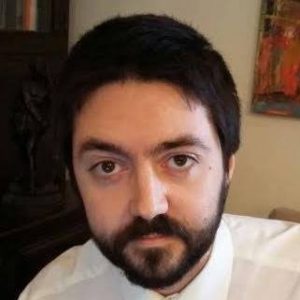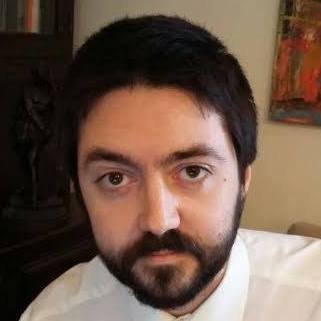 Richard Storey LL.M is a Catholic traditionalist, sometimes described as a medieval libertarian. His writing spans law, history, theology, and cultural criticism, and he is the author of The Uniqueness of Western Law: A Reactionary Manifesto. He lives in England with his wife and three children.
Richard Storey LL.M is a Catholic traditionalist, sometimes described as a medieval libertarian. His writing spans law, history, theology, and cultural criticism, and he is the author of The Uniqueness of Western Law: A Reactionary Manifesto. He lives in England with his wife and three children.
Grégoire Canlorbe: Ayn Rand’s notion that scientific racism is the worst form of collectivism has virtually reached the whole libertarian spectrum. How do you conciliate libertarian individualism and race consciousness?
Richard Storey: Well, at once we need to first understand what we mean by libertarian. Most libertarians would believe they are libertarians because they are Austrian economists or because they are extremely individualistic, I would say, “hyper-individualistic”. That is not libertarianism. Libertarianism is only a theory of law, that’s it. What kind of law is that? Well, it is the rule of law – a deontological theory of law. The law rules above everyone. The law is king of kings, if you want to put it that way. And so I think most libertarians do not even understand what the word means themselves.
So, where does this more modern, secular libertarianism, which we are more familiar with, come from? It emerged from an Anglo-liberal, classical liberal background, inspired by figures like John Locke. It is very individualistic, of course, as anyone with a passing knowledge of Ayn Rand can see full well. And yet, even figures like Murray Rothbard, Jeff Deist, who is of course the current President of the Mises Institute, recognize and speak very openly about the necessity of family and of the groups into which we are born; they speak about culture, they speak about religion, and of course nationality – your territorial, ethnic group if you like. That is something you are born into as much as your family, your immediate family. Or at least it used to be.
Of course, in cities, in the artificial environments we have been created for the past 2000 years, the situation is very different. Your family, or what you might call your family might just be a group of loose friends that you have, maybe who you meet at the café, or some people you see at work and, really, you do not have a great deal of interaction in your community, in your neighbourhood. So, many libertarians are now realising, through my writings, those of Frank van Dun and Hans-Hermann Hoppe, that the former intermediary institutions and communities between the individual and the state, which formed medieval society, were essential in preventing the rise of centralised, coercive states among European civilisations.
[Read more…] about A conversation with Richard Storey, for The Council of European Canadians
